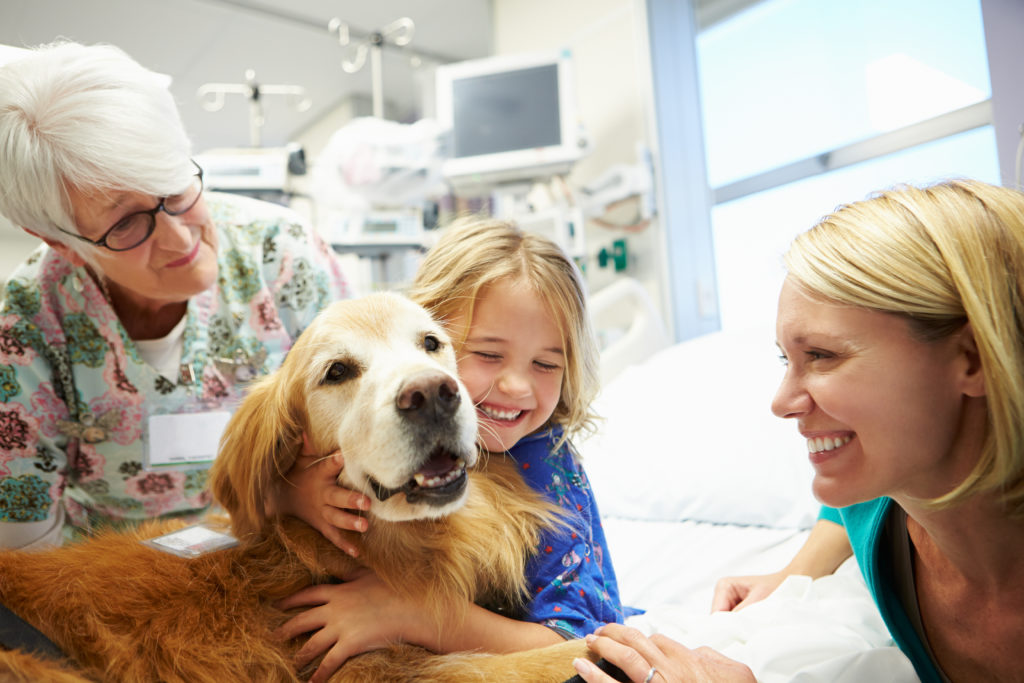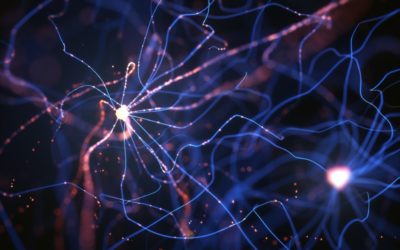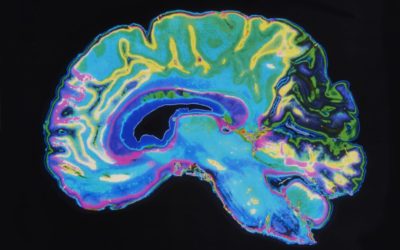Quick Hits
Daily brief research updates from the cognitive sciences

There have been lots of studies into the positive impacts of having pets around us – but this study just published looked at brain activation patterns while being with a dog, petting a dog, and with an ersatz cuddly toy lion.
The research showed that brain activation patterns were highest when petting dogs – unsurprising because this was the most interactive condition in the study. The researchers saw increased activity in the prefrontal cortex and notably in the medial prefrontal cortex which is associated with human social functions.
More surprisingly was that the cuddly toy elicited smaller responses – obvious you may think but in this study the cuddly toy was filled with a hot water bottle to be at the same temperature as a live dog and to have a similar fur texture. This was to elicit a response as close to the real thing as possible.
The response was lowest for the cuddly lion (but it did elicit a response) – possible because of the social activation as we realise it is not a live animal.
What was also interesting is that the response for petting the dog lingered on for a lot longer than any of the other conditions.
This shows that the response is not only in the moment but also has a lasting impact – that’s one reason to have pets but also an important consideration in animal assisted clinical therapy.

Andy Habermacher
Andy is author of leading brains Review, Neuroleadership, and multiple other books. He has been intensively involved in writing and research into neuroleadership and is considered one of Europe’s leading experts. He is also a well-known public speaker, speaking on the brain and human behaviour.
Andy is also a masters athlete (middle distance running) and competes regularly at international competitions (and holds a few national records in his age category).
References
Rahel Marti, Milena Petignat, Valentine L. Marcar, Jan Hattendorf, Martin Wolf, Margret Hund-Georgiadis, Karin Hediger.
Effects of contact with a dog on prefrontal brain activity: A controlled trial.
PLOS ONE, 2022; 17 (10): e0274833
DOI: 10.1371/journal.pone.0274833
More Quick Hits
Why Too Much Talent May Harm Performance
This may sound like a strange thing to say – but talent and team coordination are different things…
How Nutrition Can Increase Motivation – In the Brain
Fascinating study on how antioxidants (and therefore also nutrition) in the brain can increase motivation…
Mindfulness Intervention as Effective as Drugs in Anxiety Disorders
An important study showing how mindfulness is as effective as medication – without the side effects…
New Insights into How the Teenage Brain Develops
Teenagers’ brains go through substantial changes – and now we know more of some of these…
Screen Time Boosts Wellbeing in Teenagers!
Screen time is considered a modern technological evil – maybe not so for teenagers…
Taking Photographs of Slides Improves Memory of Presentations
Taking pictures has been shown to reduce memory – but this study shows the opposite…






